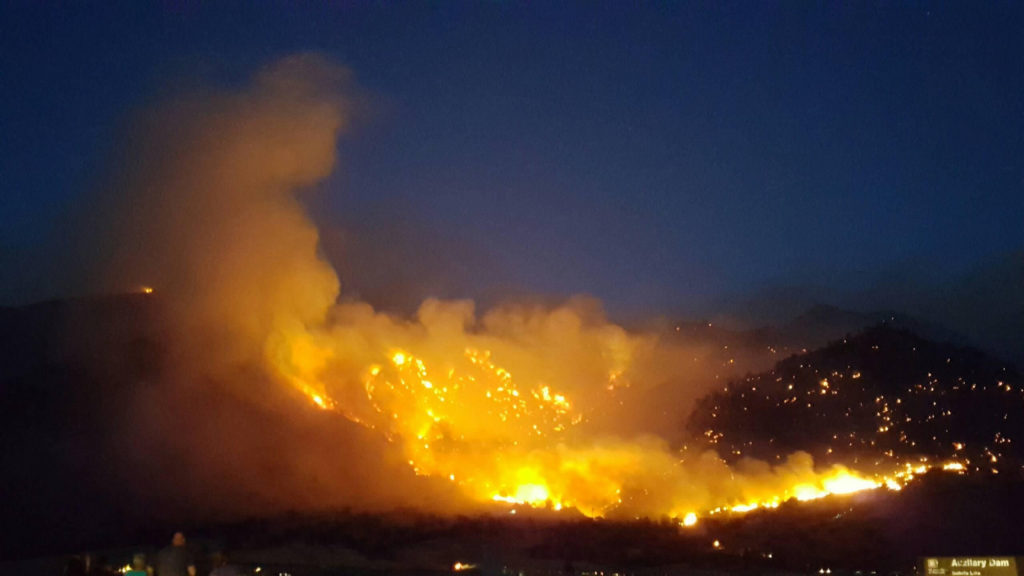Originally published on MintPress News.
AUSTIN, Texas — Attention climate change deniers: Every month in 2016 has brought new evidence that climate change is real and having measurable, harmful effects on the planet and its people.
July was the hottest month since meteorologists began recording weather data, according to both NASA and the National Oceanic and Atmospheric Administration.
JUST IN: #July was hottest month on record for globe – @NOAANCEIclimate #StateOfClimatehttps://t.co/yfJUYpFugi pic.twitter.com/wCU2odlLZ2
— NOAA (@NOAA) August 17, 2016
To understand how rapidly Earth is warming, consider this: This year’s record-breaking temperatures shattered records set just last year, when July 2015 was the hottest month ever recorded.
“Temperature records are falling like dominoes, month after month, year after year,” wrote Kate Lunau, editor at Motherboard Canada, on Aug. 17.
In fact, Lunau noted, “each consecutive month in 2016 has broken its own previous record (May was the hottest May, April the hottest April, etc.).”
“July was the fifteenth month in a row where the global land and ocean temperature was the highest recorded since 1880,” she reported, citing NOAA data.
“The streak of consecutive records started in May 2015,” Ahira Sanchez-Lugo, a climatologist at NOAA, told Lunau.
Sanchez-Lugo warned that action on climate change is crucial for human survival. “We need to look at ways to adapt and mitigate. If we don’t, temperatures will continue to increase.”

In addition to record-breaking temperatures, 2016 has also brought more than its fair share of severe weather events, from flooding to fires. While no single weather event can be definitively pinned on climate change, scientists are increasingly in agreement that global warming is contributing to more, and more severe, natural disasters.
Melting polar ice can even revive dormant diseases. Twenty people and more than 2,000 reindeer were infected, and a 12-year-old boy and his grandmother died this month after melting permafrost exposed a decades-old, anthrax-ridden reindeer corpse in a remote corner of Siberia.
Writing for The Guardian on Wednesday, Mona Sarfaty, director of the Program for Climate and Health at the Center for Climate Change Communication at George Mason University, noted that indigenous people in the tundra tend to bury their dead in shallow graves, increasing the risk of infection as temperatures rise.
But that’s not the only health risk from global warming.
“Climate change can exacerbate the spread of infectious disease by changing the behavior, lifespans and regions of diseases and their carriers,” she warned.
Sarfaty concluded:
As risk is added to risk, the signals of our changing climate underscore the urgent need to put climate change solutions in place. Even more than we know, our health may depend on it.
In addition to the impact on human health, unchecked climate change also creates an immense financial burden. “The Price Tag Of Being Young,” a study released on Tuesday by Demos and NextGen Climate, found that climate change could cost the millennial generation $8.8 trillion in lifetime income. Each millennial could stand to lose an average of about $142,000 in potential accumulated wealth if climate change is left unaddressed, and the cost to that generation’s children would be even higher.
Appearing Wednesday on Democracy Now!, Heather McGhee, president of Demos and Demos Action, said only drastic action can create a better world for future generations. McGhee said:
That would look like, really, a World War II-style mobilization, both of our politics and of our economics, of all of us saying that there is actually a better way, that we can recreate our economy and put those communities that have been last in line in a fossil fuel economy first in line in a new clean energy economy.